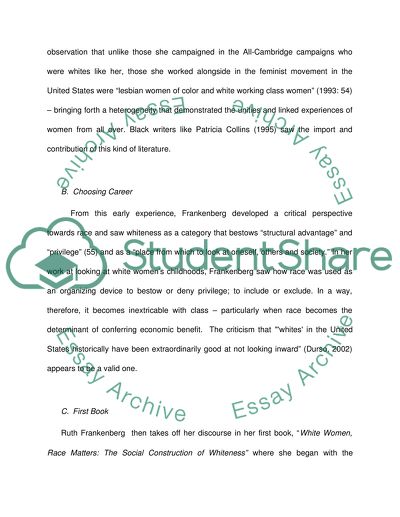Cite this document
(“Ruth Frankenberg Reseach Paper Research Example | Topics and Well Written Essays - 1750 words”, n.d.)
Retrieved from https://studentshare.org/english/1433899-reseach-paper-american-author
Retrieved from https://studentshare.org/english/1433899-reseach-paper-american-author
(Ruth Frankenberg Reseach Paper Research Example | Topics and Well Written Essays - 1750 Words)
https://studentshare.org/english/1433899-reseach-paper-american-author.
https://studentshare.org/english/1433899-reseach-paper-american-author.
“Ruth Frankenberg Reseach Paper Research Example | Topics and Well Written Essays - 1750 Words”, n.d. https://studentshare.org/english/1433899-reseach-paper-american-author.


